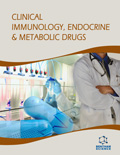Abstract
Cystic fibrosis (CF) lung disease is nowadays appreciated as a complex trait, characterised by dysfunction of the CF Transmembrane Conductor (CFTR) protein, opportunistic bacterial infections, chronic inflammation and remodelling of the airways. In this review, we have analysed the usefulness of biomarkers of inflammation and remodelling for their ability in predicting and assessing the onset of a pulmonary exacerbation, its evolution with time and its response to therapeutic interventions. Studies concerning sputum, bronchoalveolar lavage fluid, exhaled breath condensate and blood were considered. Our conclusions are: I) although their validity has been proven across different clinical settings, presently there is no biomarker which can be “promoted” to the status of surrogate end-point; II) longitudinal studies at different ages will be needed for assessing this issue; and III) different therapies should consider not only one biomarker but a constellation of them aiding in the evaluation of the complex pathogenesis of CF lung disease.
Keywords: Bronchoalveolar lavage, cystic fibrosis, cytokines, exhaled breath condensate, growth factors, oxidative stress, sputum.
Graphical Abstract
 39
39

